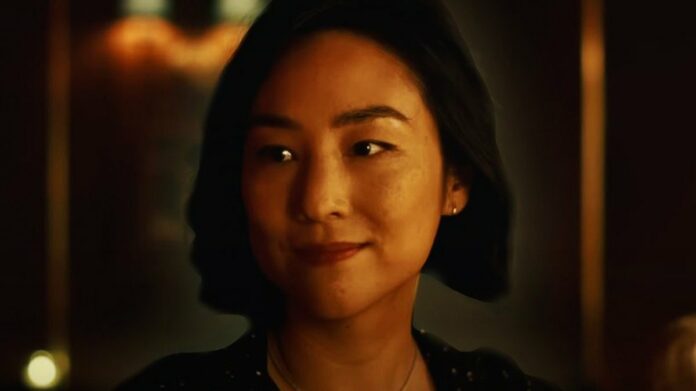Celine Song’s film Past Lives is unique in many ways. It’s a romance with a tragic ending that leaves you in tears, just like the protagonist, Nora. To truly understand the deep connection that Nora and Hae-Sung feel, we must first understand the word “인연” (Inyeon). The concept of “Inyeon” professes that everyone you meet in your life is fated to meet you. Even if you just rub shoulders with someone from your past life, it means that you’ve created a connection with each other that will remain for many more lives.
Nora and Hae-Sung are childhood friends who drift apart when Nora has to move to the US with her family. At first, she’s terribly sad to leave her only friend behind, but when she’s there, she quickly blends into her new life. After many years, when they’re at the point in their lives when they need to make some important decisions for themselves, they re-enter each other’s lives. There’s a spark between them immediately, and both of them seem quite infatuated with each other. They talk to each other through Skype and get to know each other’s stories up until that point.
“Inyeon,” explained in the easiest way, would be “fate” or “destiny.” I met this person at this tumultuous time in my life, so it must be destiny. The term “soul mates” seems rather frivolous in comparison, but in truth, the concept is kind of the same. Maybe we are destined to be soulmates. As non-natives, we possibly can’t understand the depth of “Inyeon” completely, but on the other hand, we can understand Nora and Hae-Sung’s connection. It’s so clear when they meet again that they’re mad at each other. It’s not lust; it’s not romantic; it’s not fancy, large gestures; it’s unconditional but also invisible.
It’s probably because Nora is married to a man she loves very much that she doesn’t accept this love. Hae-Sung and Nora drifted apart again after their skype reunion because they were on very different wavelengths in life. Nora wanted to go up in her career, and going back to Korea meant the opposite of that. This turmoil made her choose to stay away from Hae-Sung, leaving their strings worn out. Later, when Nora sees Hae-Sung again, she starts to feel resentment towards her own decisions. It’s very clear that she’s trying really hard not to accept that she let go of one good thing for another.
12 years after moving, Nora has not only changed her name but she’s also forgotten most of her Korean to make space for English. With the little that she has, she’s still able to communicate with Hae-Sung, and they manage to appreciate each other even in that situation. But things aren’t as perfect as they seem because soon the time differences, dedication to work, and their lifestyles will play significant roles in their relationship. Nora can’t handle the pressure and chooses to take a break. That’s when she goes for the artist retreat, where she meets her present-day husband and pretty much forgets about Hae-Sung again. It’s rather clear that Hae-Sung makes that trip up to New York because he wants to see Nora and possibly get closure for all of his feelings for her. She has clearly made her decision, but he needs to step away from her, too. For both Nora and Hae-Sung, their meetings revolve around “what could’ve been” rather than “what is.” This is why, when Hae-Sung is leaving, he asks Nora if this is perhaps a past life and that in their next one, they will be lovers. Nora replies that she doesn’t know, and neither does Hae-Sung. It’s a very tragic goodbye, but it’s also somewhat optimistic. At least to Hae-Sung, it is, but what does it feel like to Nora?
There were a couple of points in their lives when Nora and Hae-sung’s string of fates was close to severance. When Nora moved countries, and then a second time, she decided to take a break from their calls and then ended up meeting Arthur. Imagine you have two options to choose from, and you love them both deeply. After a lot of thought, you pick one, and then, out of the blue, the other option shows up in front of you just as radiant and as you remember it. Imagine, then, that you can still change your mind, but that would affect a lot of other things as well. It may be true that the love that Nora and Hae-Sung have for each other is unique and seemingly unattainable, but it would also separate Nora from the life she built for herself. The little girl who learns not to cry and keeps herself strong in front of the rest of the world finally loses her composure.
“Inyeon” serves as Nora and Hae-Sung’s way of dealing with life’s challenges in various ways. They don’t have to feel burdened by their decisions. Nora’s mind goes through a lot when she meets Hae-Sung again. Her immigration, her Koreanness, her love life—what her life would’ve been like if she still adapted Korean culture as much as Hae-Sung. All of this at once would be such an overwhelming feeling, and ultimately, it crescendos into this tremendous last cry because it’s time for her to clear out her system and become that young girl again who feels them and stops masking them. Nora cries because she’s sad that she loves Hae-Sung but can’t do anything about it. Maybe she cries because she thinks it’s silly that they would think about “Inyeon” when they chose to be separated. In Past Lives‘ ending, Nora cries to free herself from all these complicated feelings and go back to the successful and beautiful life she’s created for herself.

